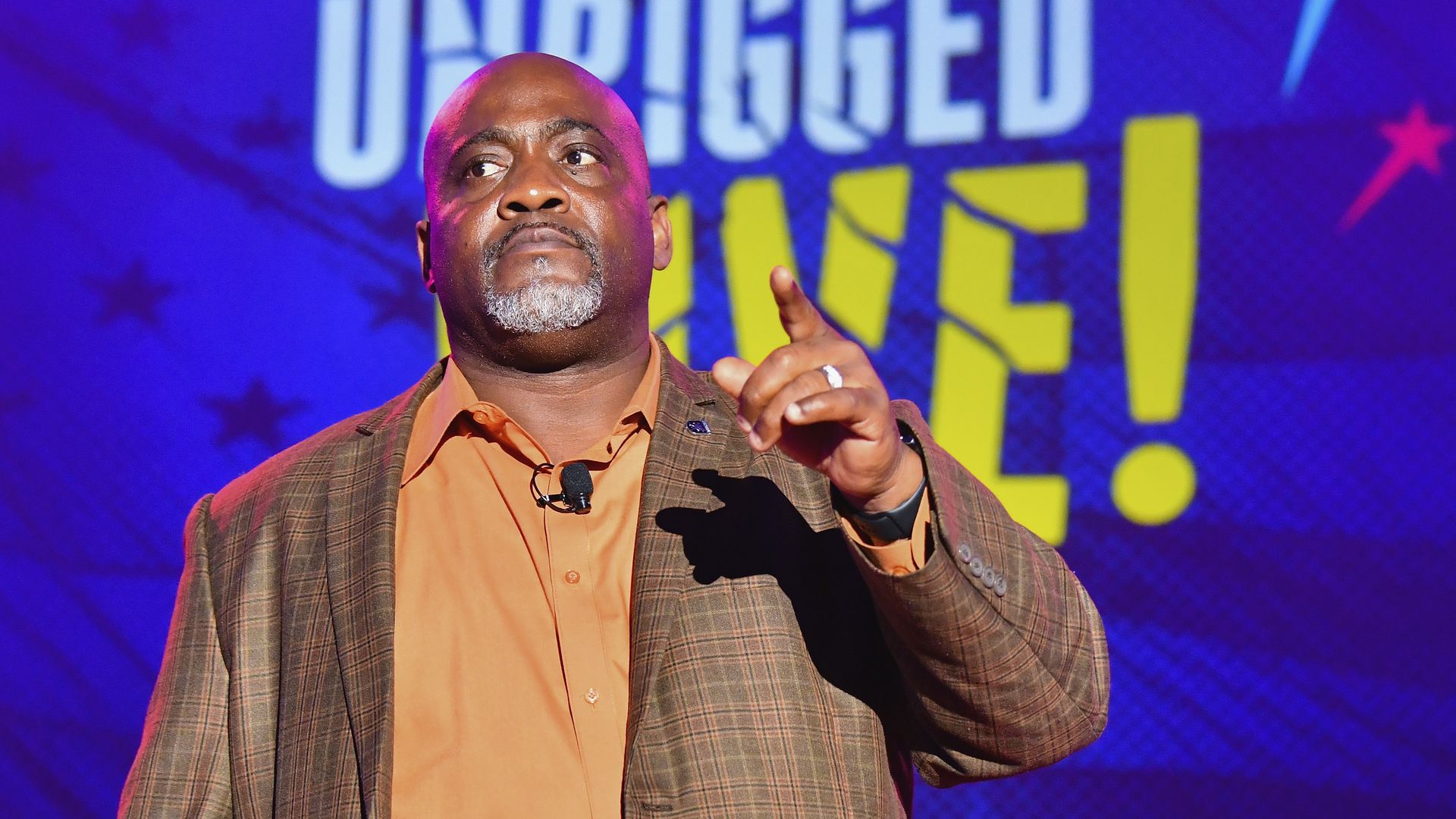Over 1 million ex-felons in Florida can now register to vote
Add Axios as your preferred source to
see more of our stories on Google.

Desmond Meade, president of the Florida Rights Restoration Coalition, who championed the sweeping voting rights ballot measure. Photo: Erika Goldring via Getty Images
Up to 1.4 million people with felony records in Florida are now eligible to vote in elections — a historic milestone that comes two months after Floridians approved a constitutional amendment to automatically re-enfranchise those who have completed their sentences. It does not include people convicted of murder or sex crimes.
Why it matters: The ballot measure, which overturned a Jim Crow-era law and passed with nearly 65% of the vote, will enfranchise more people at once than any single initiative since the Voting Rights Act of 1965. This new voting bloc has the potential to shift the makeup of the country’s largest battleground state, where razor-thin margins often play a deciding role in presidential elections.
Background: The measure's passage set off a partisan debate about how and when the measure will be implemented. The amendment says that “voting rights shall be restored upon completion of all terms of sentence including parole or probation.”
- However, it’s still unclear what "all terms" means. Some say former felons could be required to repay all fines and fees connected to their sentence, per local reports.
- Republicans leaders like Gov.-elect Ron DeSantis, who oppose the measure, told the Palm Beach Post in December that it should be delayed because clarification is needed from the state legislature — which doesn't meet until March.
- But civil and voting rights organizations argue that the initiative can go into effect without enforcement, and that critics are trying to thwart the will of voters. The American Civil Liberties Union also vowed to take legal action against efforts to undercut the measure.
Meanwhile, the Florida Rights Restoration Coalition, the grassroots group that championed the push, is orchestrating a voter education campaign to ensure that newly enfranchised Floridians exercise their voting rights.
The big picture: Only three states — Iowa, Virginia and Kentucky — continue to constitutionally prohibit ex-felons from voting unless the governor approves a clemency plea.
- Before the new policy went into effect, felony disenfranchisement laws affected about 6 million people nationally, according to the Sentencing Project. Florida had the most stringent laws, banning more people from voting than any other state.
Go deeper:
